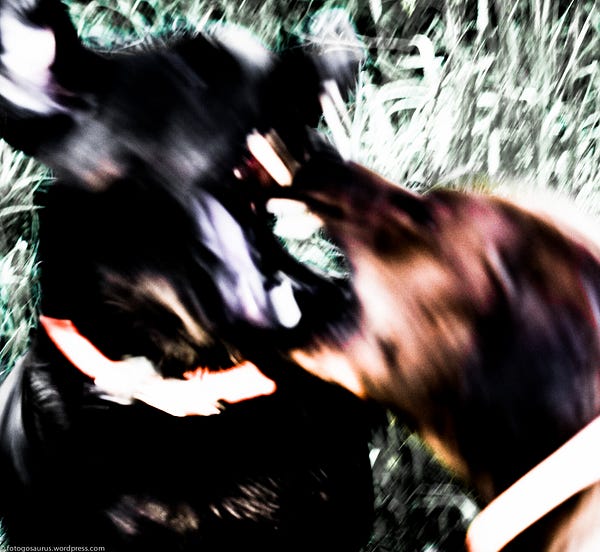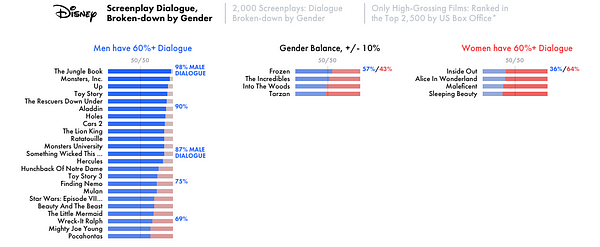To The Lighthouse: A Review of Annihilation
“Our apparitions, the things you know us by, are simply childish. Beneath it is all dark, it is all spreading, it is unfathomably deep; but now and again we rise to the surface and that is what you see us by.”― Virginia Woolf, To the Lighthouse
“Give me the splendid, silent sun with all his beams full-dazzling.”― Walt Whitman, Leaves of Grass
Alex Garland would appear to be an ideal director for a science fiction thriller based on aliens. He wrote Sunshine, a compelling outer space adventure that is a modern day “Heart of Darkness”. This crew is haunted by a “Kurtz” who becomes religiously obsessed with his surrounding. Garland also wrote and directed the exquisitely rendered Ex Machina, where another myopic lunatic experiments with artificial intelligence. Garland’s latest, Annihilation, has the aftertaste of a bad meal prepared by a trained chef. Was it the director’s intention to, metaphorically, combine Virginia Wolfe’s spiritual journey “To the Lighthouse” with James Dickey’s seminal endurance test, Deliverance and the horror classic The Island of Dr. Moreau? Perhaps adding the garnish of Daytime TV and a smattering of video flashback gore from the space horror classic Event Horizon was an attempt to salvage the main entree. Unfortunately the pudding lacked a theme. The rehashing of the proven ingredients led to a stew of tired troupes. Even the opening, aliens crashing in a meteoric fireball, failed to live up the identical sequence in the thematically similar 1997 feature, Smillia’s Sense of Snow. There is an uncomfortable tired opaqueness that permeates the alien’s lair. Literally.
The space invaders build a cocoon in which the laws of nature are reinvented in a semi-translucent prism that bends everything, including light and DNA. The Government takes action by setting up an encampment outside this ever-growing web. Three years of expeditions into the abyss have yielded an almost perfectly casualty rate of scores disappeared and presumably dead. The one returning soldier, the protagonist’s spouse, is in a coma. The government has little understanding of the phenomenon, except that it is growing exponentially from an old lighthouse, which marks the initial point of impact. Given this bleak track record, the last course of action would be to send in, yet another, team of soldiers. This turns out to be the plan. Needless to say red flags start appearing almost immediately in the artistry as well as the plot.
Garland should be commended for creating a team of women scientist soldiers to fight the forces of the rainbow gauze. It is probably the first time such a diverse sorority with such impressive CVs has come to do battle in the context of mainstream American feature films. Despite their varied backgrounds, from biology to chemistry to strictly fighting, they are troubled souls with full knowledge that this is probably a suicide mission. The premise held the suggestion of heroism but this unlikely band of heroes is undone by stupidity. There is never any explanation of the overall game plan. They march around on foot. Why not bring vehicles? What differentiates this endeavor from all the past failures? This sense of absurdity is compounded by the events once inside the magic dome. There is painful exposition that attempts to establish background and motivation. This has the opposite effect of making the action seem forced and the camaraderie appear inauthentic. It is interesting to contrast this band of star crossed warriors with the scientists in Garland’s Sunshine. That group is also trapped in a light cage, but the audience never questions their friendships or decisions.
The curse of the aliens is creating a primordial soup on a molecular level. All living things merge in a horrific breakdown. Deer become flowers. People become bushes or have their inside turn into eels. It is interesting that birds and insects seem immune or perhaps the fx budget failed to cover those classes of creatures. The setting shares the identical problem that plagues the characters, an unfulfilled promise of what might have been. What does it mean to live in a world where, on a cellar level, everything is intermingling? This film fails to shed any light, even a diffuse ray, on the answer. Instead we are left marveling at the gore of a bodies turning into plants and a bear that has the ability to scream with the exact timbre of voice as its last victim.
Garland’s folly might have been palatable had the film limited itself to being a shooter game in the context of a bizarre world. Unfortunately the writer/director created a ‘love triangle’ preface and ‘deep moment’ coda that are unforgivable for an artist with Garland’s proven ability. The presentation of Natalie Portman and Oscar Isaac is the stuff of telenovelas or cruise ship commercials. It is as if two contestants on the dating game were asked to strip to their draws and pretend they were a passionate married couple. The gory scenes in the alien jungle trigger nausea as do all the intimate moments between the lovers including the third wheel of the triangle. The lack of chemistry combined with dialogue gleaned from greeting cards snuffed out the ability of the talented performers to practice their craft. It would be interesting to know what alien force invaded the artistic process. Perhaps a word from the bean counters at the studio? One can imagine the orders coming down from above: this film needs some romance! Too bad the powers that be never recognized Garland’s strength, as shown in Ex Machina and Sunshine. He is the master of portraying zealots, not lovers.
The ending sequence was laborious in a different manner. The lack of cohesion in the narrative was masked in the borrowings from numerous past films in the hope of making a grand statement. The extraterrestrial lighthouse cave brought to mind the crash site of the spaceship in the original Aliens. The wrestling sequence called to mind a strange combination of Bergman’s enigmatic meditation on individuality, Persona; weirdly grafted with the professor/scientist quest for truth in Altered States. The love story hinted at the couple reconciliation in The Abyss. No doubt there are scores of other references and the end result is piecing together a clever jig saw puzzle from frames of movies past. There is some satisfaction in coming to an understanding of the artist’s vision. Unfortunately this epiphany never holds a candle to the enlightenment of meditating over a masterwork. One can spend spend decades reading the supposed meaning of Persona or 2001 and feel we are are on a path to some better understanding, not just of the film, but of ourselves. Annihilation leaves us in a murky morass of solving riddles produced by inferior artistry. In the end we are left with Natalie and Oscar hugging in a unification of their “otherness”. This ties to Natalie’s original lecture on cell biology. Her character, a professor of biochemistry explains all living things started from one cell. It divided into two, then four, then eight and that produced everything and everyone. The conceit is that this new Adam and Eve are going to spell ANNIHILATION for the human race. The problem lies in parsing all the light-show gobbled-gook which shows, for the first time, the alien presence cohesively piecing together a clone of the heroine. This suggests her re-appearing partner is also born of the same process. Natalie, however, has cleverly managed to subvert the alien and retain the bulk of her own personality. Interestingly, rather than reject her spouse’s doppelgänger, she gives him a hug.
Perhaps a stronger title for this film would have been Alienation as the real story is the tension between isolation and being a part of the larger group. Natalie plays Crosby Still & Nash’s “Helplessly Hoping” when her spouse returns. The chorus is:
They are one person
They are two alone
They are three together
They are for each other
The film shows that the intermingling of DNA points to the idea in the first line, i.e. we are all one. Annihilation certainly hammers home the notion that individuals are always living Thoreau’s “lives of quiet desperation.” The major failing in the work, however, is the inability for Garland to muster an answer to CSN’s “together” and “each other”. The characters in the film are bound by their pathologies and, unlike an AA meeting, the camaraderie is based in the disease rather than pursuit of a cure. There is never a sense, until the closing hug, that anyone is “for each other”. This action, finally, introduces a glimmer of the aliens’ point of view. Who are they? What do the want? Domination is such a primordial human emotion that the embrace hints that, despite all the grotesque garnish, these beings are our twins. Perhaps that was the point but Garland’s failure to shed light on their perspective leaves us in the dark. This is ironic.
Light itself played a major role in Sunshine and deserves to be named as a supporting character in this film. It is enjoyable to bask in the endless cutaways of rainbow sheen. It is also wonderful to see a film with so many compelling female leading roles in light of the dearth of material historically available. (If anyone doubts this please read the data available regarding film dialogue broken down by men vs. woman)
This film might have had the audience pondering whether plants have morality or if bacteria feels pain. Instead we gawk at a deer-like creature with flowers for antlers or squirm at truly monstrous effects of cross-breading. It is as if this director has turned to the interests of a 12 year old boy pulling the wings off flies in the guise of focusing on philosophical/ scientific questions. Hopefully this is a passing phase. Unfortunately interesting ideas and progressive casting fail to deliver a garland to Garland. A lighthouse is no good without a lighthouse keeper.




No comments:
Post a Comment